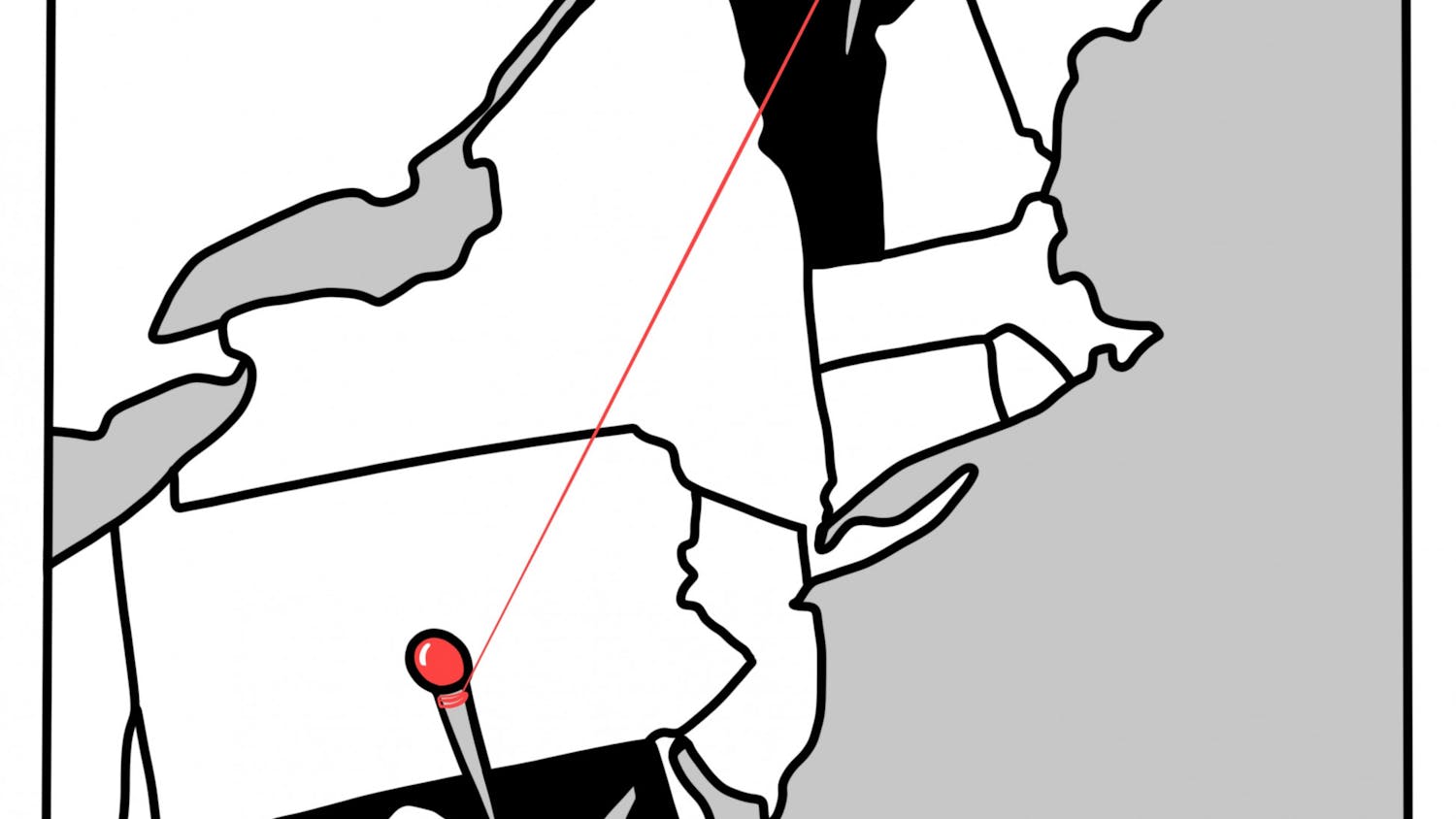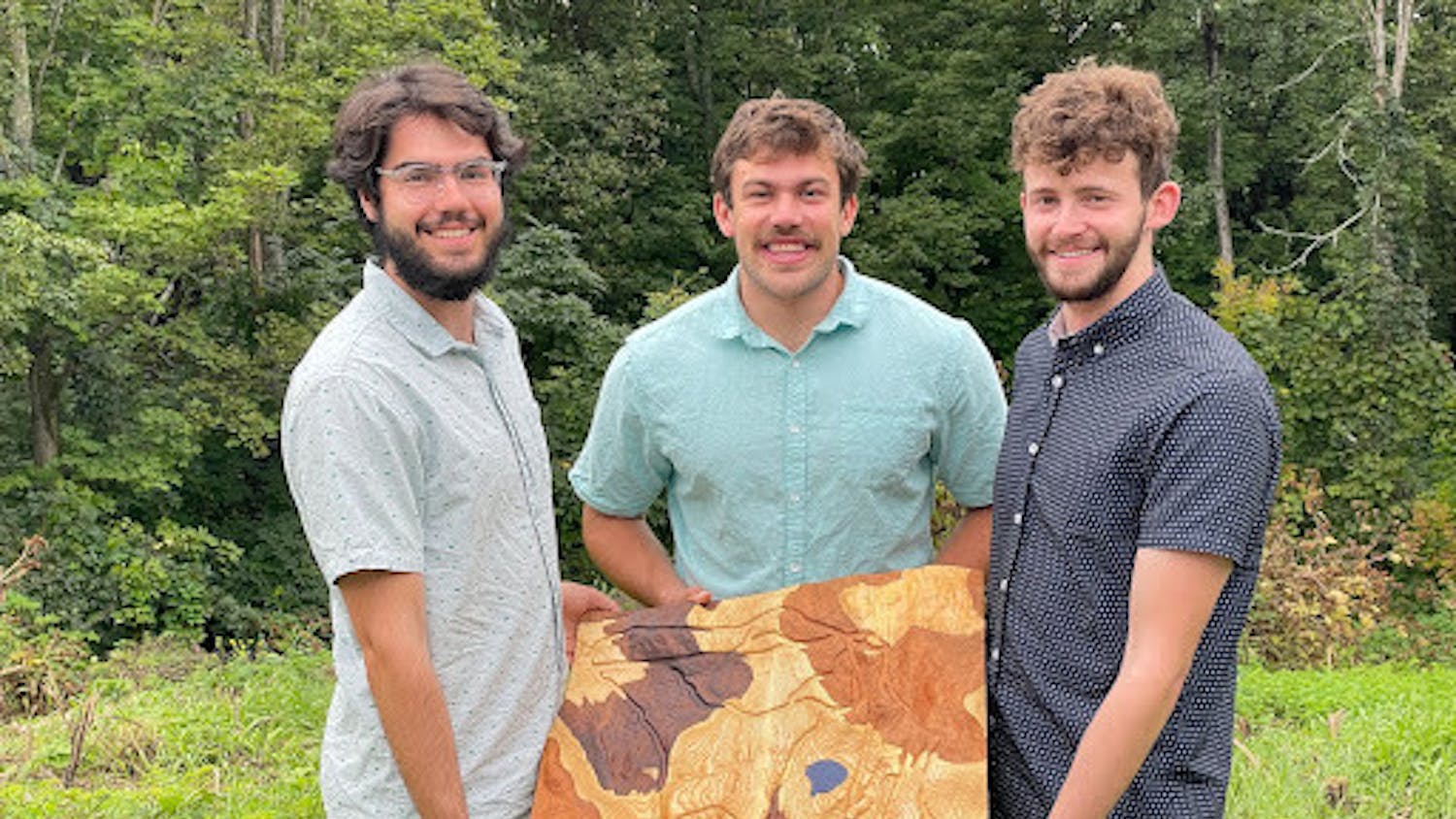Though Vermont is typically known for its dairy farms, a completely different type of farm can be found in Brandon, VT — Maple View Farm Alpacas (MVFA).
Frequented by both Vermont tourists and Middlebury students, MVFA is located on 100 acres of Vermont farmland, about 20 miles (a 25-minute drive) from campus. According to the farm’s website, visitors to the farm are welcome to visit the alpacas, shop at the farm's stores, purchase alpacas and learn more about the alpaca breeding business. The farm will be celebrating 20 years of business this year.
Owners Deb and Ed Bratton started the farm in 2002, after previously working in corporate IT. The couple knew they wanted to do something different in retirement and were familiar with the area.
“After visiting family in Vermont for many years, we decided to move here, lucky to have found this beautiful farm,” Deb said. They enjoy the actual farm work, as well as the alpacas themselves, she added.
Deb said her favorite trait of the alpacas is each of their unique personalities.
“Like people, each one is a bit different,” she said. “As visitors have noted, some are clearly more social than others and since we host visits, it’s always good to have a few of those.”
According to Deb, another positive feature of alpacas is that they provide a product that can be harvested without any harm to the animal: alpaca fur. Alpacas are also lower maintenance than many other livestock because they require less milking.
Typical days at the farm begin at 5:30 a.m. with morning chores before the work day begins, such as cleaning pens and feeding the animals. The animals go out every day barring very poor weather.
“We do the farm chores ourselves. With only 20 alpacas now, that is easily accomplished. When we had 45, we still did all the chores ourselves but [if we had] more than that we would likely have help,” Deb said.
During the day, the couple works on various projects for the farm while also attending to visitors. Each day ends with the evening chores: bringing in and feeding the alpacas, cleaning up, and tending to hay and water needs.
In addition to the farm, the Brattons opened a mill on their property where Deb spends most of her days, working alongside the farm’s two part-time employees.
According to Deb, “About 10 years ago, we also opened the mill on the farm to make products for ourselves, but also outside customers. While it was really done out of necessity to get our own products made in a timely manner, we really do enjoy it as well.”
The mill has since greatly expanded to have its own website and business of custom processing fiber into materials such as yarn and felt. The mill's equipment can be rented and is available for fiber workshops, which are hosted in the studio.
The farm also operates a store that sells many products made from alpaca fur, which is known to be both soft and durable. These alpaca fur products include both rugs and winter wear.
Additionally, MVFA regularly hosts events in which visitors can participate. Previous activities have included the Vermont Sheep and Wool Festival, as well as instruction on how to dye alpaca fibers.
Passersby to the farm often include out-of-state visitors, as well as guests of local residents. “It’s always amazing to us how many repeat visitors we get,” Deb said.
Middlebury student Susanna Schatz ’24 said visiting the farm was one of her favorite experiences she has had at college so far.
“I loved petting the alpacas; there were two that were especially friendly and they came and sat down next to us,” Schatz said. “I love animals and have a lot of pets at home and while I’m at Midd I definitely miss my pets so it was really nice to get to spend time with an animal.”
“The owner of the farm was really kind, and he told us a lot about the alpacas and his experiences and answered all of our questions,” she added.
Until recently, MVFA had bred their own alpacas, and had crias (young alpacas) on the farm each summer. Though the crias were fun, Deb said she and her husband decided to stop breeding alpacas because of their long life expectancy. This decision has allowed for stabilization in the size of the herd, and the Brattons can focus on other aspects of the farm.

Julia Pepper '24 (she/her) is the Senior Local Editor.
She previously served as a Local Editor. She is a Psychology major and French minor. This past spring she studied in Paris. She spent the summer interning at home in New York City, putting her journalistic cold calling skills to use at her internship doing outreach with senior citizens. In her free time she enjoys reading and petting cats.



